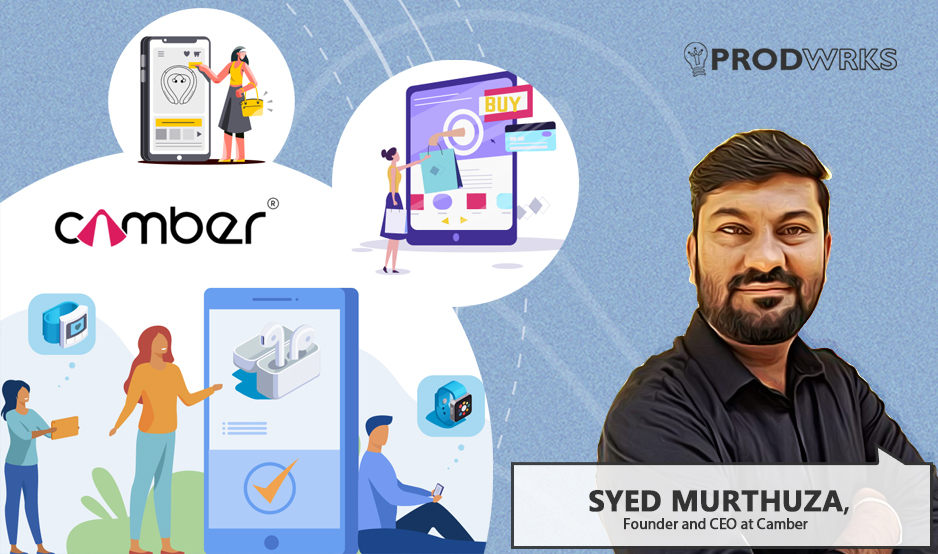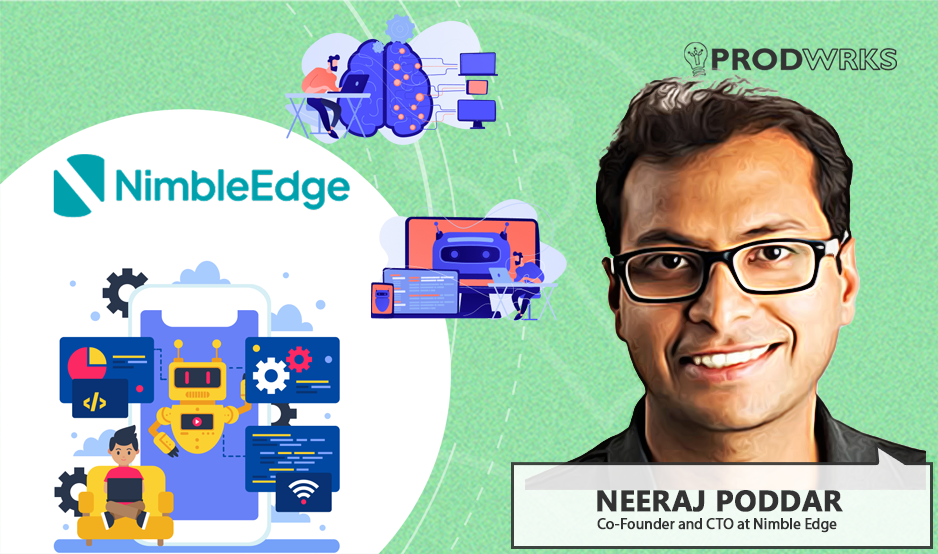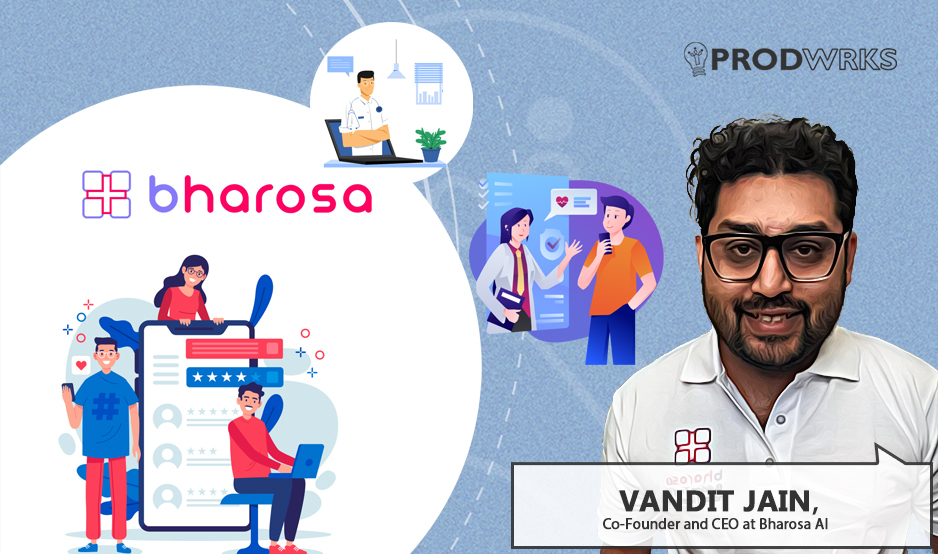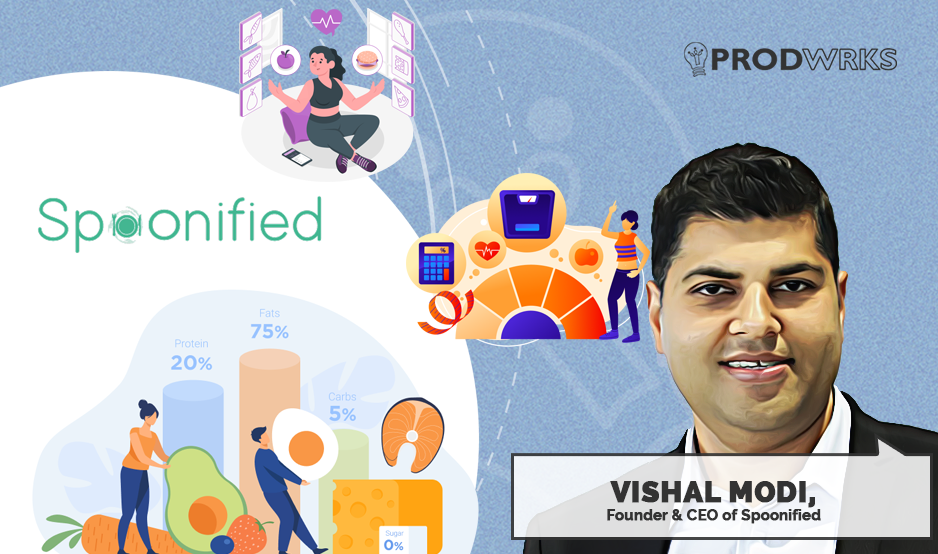
In the United States alone, the CDC reports that over 40% of adults are obese, and a staggering 98 million are pre-diabetic. The root cause of this public health crisis can often be traced to unhealthy eating habits. For decades, the solution has been a matter of choosing the “right” food and tracking what we eat. However, for all the data that tech helps us collect on our steps, sleep, and heart rate, the most critical input for health, the food we eat, remains a black box.
Manually tracking the food we eat and its nutritional value is tedious, imprecise, and often based on guesswork and faulty memory. Even clinicians call this data “garbage.”
Vishal Modi, a 17-year product and business strategy veteran from Motorola and Lenovo, is tackling this multi-billion-dollar problem with Spoonified.
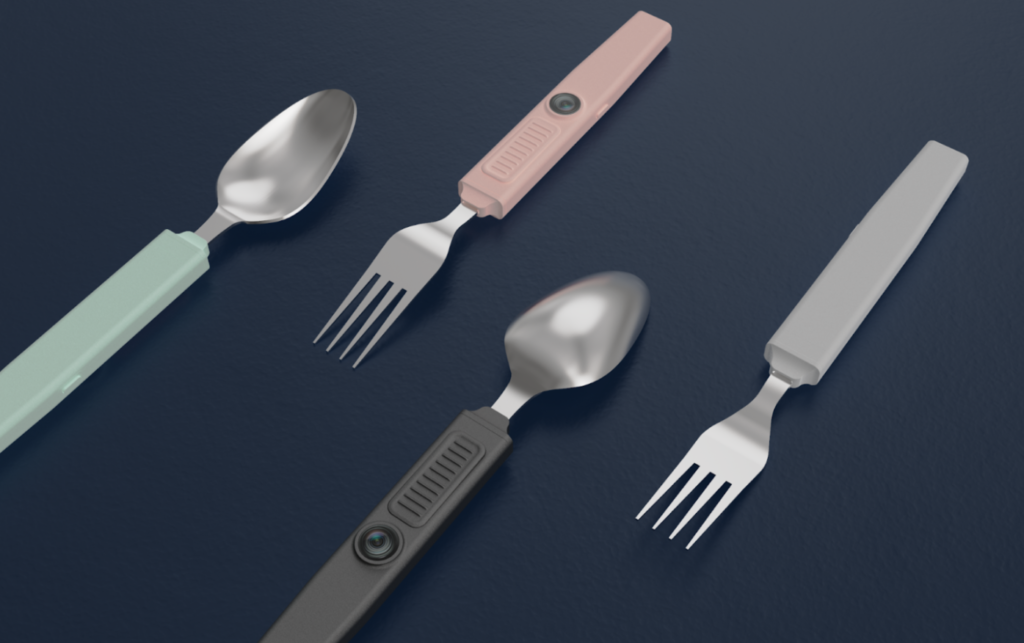
The startup is launching an AI-enabled smart spoon that identifies the food we eat, measures each bite’s weight and nutritional value, and tracks our eating speed. It generates high-fidelity data that’s been previously unattainable by dieticians and nutritionists.
For Vishal, his mission with Spoonified is deeply personal. It’s a journey that began with his own struggles with unhealthy eating habits that led to a pre-diabetic diagnosis. This is the story of how Vishal Modi turned a personal health scare into a product to fix what food-tracking apps couldn’t.
The Genesis of Spoonified
Vishal’s journey begins in Gujarat, India, where, despite growing up in a physician’s household, he developed subconscious habits of eating too quickly and too much. This led to a painful struggle with his weight, amplified by a culture of body shaming that followed him for years, even after he moved to the US and built a successful career at tech giants like Motorola.
The turning point came during the COVID-19 pandemic. A routine check-up revealed that his A1c levels were teetering on the edge of pre-diabetes. “It struck me hard,” Vishal said. This personal health crisis led him on a path to a fundamental change, not just for himself, but for his family.
Determined to take action, Vishal enrolled in a diet program. He was handed a spreadsheet that required him to meticulously track and weigh every meal he eats. For a tech veteran who had launched several smart devices and witnessed the power of sensors and IoT, the manual, high-friction process felt archaic.
"By the fourth day, I threw the diet chart away. That's when it kind of struck me. What if there is something like a smart utensil that can do this job for me?"
From a Problem of One to a Problem of Many
An idea born from personal struggle is powerful, but a business requires market validation. For the next two and a half years, while still working in the corporate world, Vishal embarked on an intensive journey of discovery.
He started with casual conversations with friends and family to validate his idea, and it soon escalated into a rigorous research endeavour.
"Before I could realise it, I ended up talking to 10-15 dieticians. I was reaching out to them on LinkedIn," says Vishal.
The feedback was overwhelmingly positive. He then expanded his outreach to clinicians, endocrinologists, and weight-loss specialists at major healthcare institutions. Over time, he amassed a trove of qualitative data from over 120 potential customers, 25 dieticians, and more than 10 clinicians.
The insights they shared validated his initial hypotheses with startling clarity.
1. The Friction of Tracking is Real: His own frustration wasn’t unique. The experts confirmed that manual meal tracking is tedious, time-consuming, and a major reason for patient non-compliance.
2. The Data is “Garbage”: Clinicians were candid about the quality of the data they received from patients using charts or traditional apps. “They said that what they got was garbage. The nutritionists and dieticians know people are guessing. But that’s the only thing that they have access to.” Vishal shared.
3. The Inaccuracy is Measurable: His research led him to the prestigious Pennington Biomedical Research Center, a leader in nutrition science. “They shared a research paper which showed that when people use apps for tracking meals, the error rate in what actually gets consumed and what is reported is typically around 16-20%.”
Iteratively Building the Future of Eating
Vishal showed the ProdWrks team a glimpse of various prototypes he has built over the years. “Building hardware is hard. I think it’s within the word itself,” he said, a knowing smile on his face.
First, he showed us the current prototype of the Spoonified spoon, a sleek, modern utensil that looks like a high-end electric toothbrush. But to get to this point was a journey of relentless iteration.

He also showed us a picture of the first prototype. “This is our very first big fat ugly prototype,” he laughed. “I don’t recall how many serving spoons I have broken to build this.”
Built in a lab at IIT Chicago, the first prototype was a clunky but functional proof-of-concept, proving that the core idea (measuring the weight of food we eat on a spoon) was feasible. The evolution from that crude model to the current design is a masterclass in hardware product development.
The journey involved:
- Miniaturization: The team’s primary challenge was cramming a complex array of sensors, a processor, a battery, and a camera into a form factor that still felt like a spoon. This required moving to a multi-layer PCB and obsessing over every millimeter of space.
- Sensor Integration: The device is built on what Vishal calls “three pillars”: identifying the food, precisely measuring its weight, and calibrating the nutritional profile. The current MVP uses a miniature camera for food identification via Vision AI, capacitive touch sensors, and an array of motion sensors to track hand movements.
- Proprietary Algorithms: The real magic, however, isn’t just the sensors, but the firmware that interprets their signals. Spoonified has developed patent-pending algorithms to solve complex problems, like distinguishing between a user taking a bite versus simply transferring food to another plate. “It’s a pretty complicated set of machine states that we have developed to recognize what is the state of the device right now,” he explained.
- User-Centric Design: Early user feedback revealed unexpected challenges and opportunities. A French test user, who held his fork with an inward grip, snapped an early prototype, forcing a complete redesign of the neck for greater durability. The initial plan to place the camera on the front was scrapped after observing that users naturally hold their phones overhead to take food pictures. Moving the camera and the single control button to the back prevented accidental presses and smudged lenses.
“We’ve probably printed 60-70 of these and thrown them away,” Vishal noted, highlighting the iterative nature of the process. Even a small rubber grip was added to the final design to improve the tactile feel, inspired by high-quality pens.
One of the most clever design choices addresses a practical consumer concern: cleaning. Making the entire device dishwasher-safe would have dramatically increased cost and complexity. The solution? A detachable head. The electronic handle stays dry while the stainless-steel spoon or fork attachment can be easily washed.
From Bites to Insights: The Behavioural Change Engine
While the hardware is impressive, Spoonified’s true disruption lies in its ability to track not just what you eat, but how you eat and to intervene in real-time when you do it wrong.
"Research has shown that it takes roughly 20 minutes for *satiety signals to reach the brain. If you are finishing your meal quickly by eating fast or eating too much, you always tend to feel like you're still hungry, and you overeat."
Spoonified directly tackles this by monitoring four unique parameters historically invisible to clinicians:
- Speed of Eating: How many bites per minute.
- Bite Size: The average weight of each bite, a proxy for portion control.
- Meal Size: The total amount consumed in a session.
- Meal Time: The duration of the meal.
Vishal says, "Think of the notification that you get on a smartwatch. It is really subtle. Only you would realize that there is something happening (not others around you)."
This gentle, private nudge is designed to break the subconscious pattern and reintroduce mindfulness into the act of eating, without the intrusive nature of lights or sounds. This rich behavioral data flows into a companion app, creating a powerful feedback loop for both the user and their healthcare provider.
For the user, the app offers visualized data on their habits, gamification features like streaks to encourage consistency, and a community to connect with others on a similar journey. Crucially, the device is designed for “smartphone-free operation,” storing up to four meals onboard to break the cycle of digital distraction at the dinner table.
For Clinicians & Dieticians, the Platform is a Game-Changer
1. Precision Nutrition Data: No more “garbage” guesswork of nutritional intake. They see exactly what and how much their patient is eating.
2. Behavioral Insights: For the first time, they can see if a diabetic patient is eating too late at night or if a patient’s rapid eating pace is undermining their weight loss efforts.
3. Customizable Thresholds: A dietician can set specific daily limits for nutrients like potassium for a patient with chronic kidney disease (CKD). When the patient approaches that limit, the spoon can provide a haptic alert, offering real-time guidance that was previously impossible.
"We are the bridge between the plate and the mouth," Vishal states. "We track every single piece of information and, based on these insights, clinicians can create much more precise treatment plans."
The Business of Habit Change
With a revolutionary product, the next challenge is go-to-market. Here again, Spoonified is taking a strategic, measured approach. While a direct-to-consumer (D2C) model is a future possibility, the initial launch will focus on a B2B2C strategy, partnering with chronic condition management clinics, weight-loss centers, and dietician practices.
“We realized that our product needs intrinsic motivation,” Vishal explained.
The people who are already engaged with a clinician are the most motivated to make a change. By having a trusted doctor or dietician recommend Spoonified, adoption rates are likely to be far higher. This turns clinicians into key channel partners, allowing Spoonified to build a base of engaged users and create a powerful “network effect” before tackling the broader consumer market via D2C sales.
The revenue model is equally innovative. While a standard hardware-plus-subscription model is on the table, Vishal is exploring a radical value-based pricing model.
"There is some sort of fatigue around subscription amongst consumers these days. So we are trying to explore a way to let the consumer themselves determine the subscription fee."
He envisions a “sliding scale model” where a pre-diabetic user, highly motivated to prevent the onset of a chronic disease, might see immense value and choose to pay more than someone simply looking to manage their weight. It’s a bold experiment in a market saturated with fixed-price subscriptions.
The Future is About Building a Smart Dining Experience
Having bootstrapped the company initially and now backed by investors, Vishal is looking ahead to expanding the product line to create an entire ecosystem of smart utensils, including smart plates and smart cups, and maybe even a lunchbox. The goal is a holistic system that seamlessly captures a complete nutritional picture, no matter what or where you’re eating.
Vertical innovation will come from embedding more advanced sensors. The team is already experimenting with spectroscopy, which uses infrared light to determine the molecular structure of food for “much more granular information.”
"Spectroscopy can also have additional use cases such as determining the freshness of the food,” he adds.
From a sketch on a piece of paper to a product that has won the prestigious UTDesign Capstone award, Vishal’s journey with Spoonified has been a story of turning personal pain into a public mission by applying deep technological expertise to a fundamentally human problem.
Vishal Modi and his team are making a bold bet: that by redesigning the simple spoon, they can redesign our relationship with food, and in doing so, help us build a healthier tomorrow, one mindful bite at a time.

